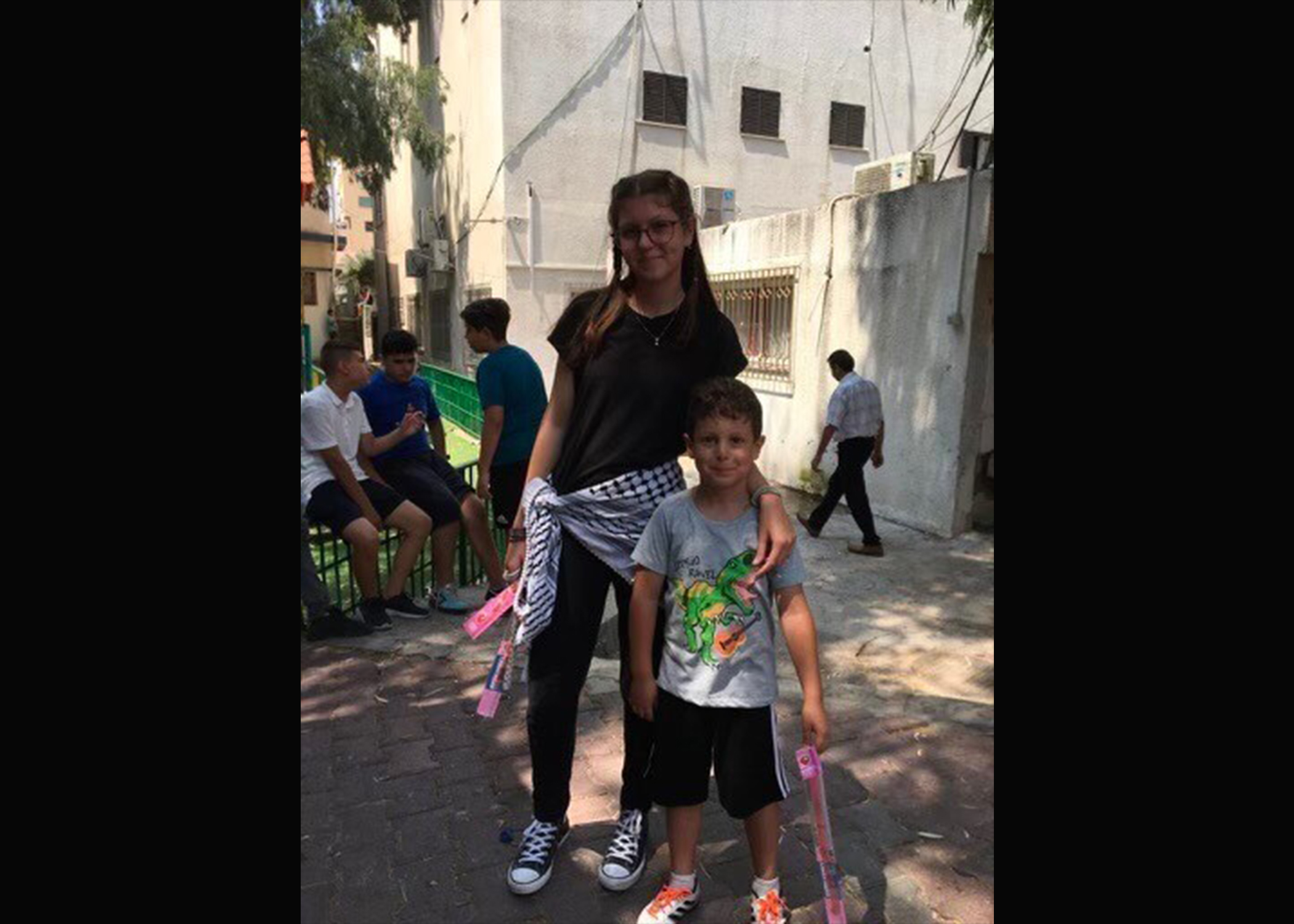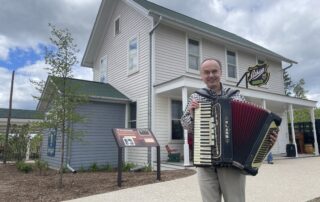For a brief time, Palestinian exchange student Anastasia had a window of what life as a Wisconsin teenager could be.
The 15-year-old made friends playing soccer at Monroe High School. She fell in love with local coffee shops.
But her world was shattered with a phone call.
“My friend, she broke down crying. Then I could hear the ambulance and I was like, ‘Why are you crying? Don’t tell me — my family — they’re dead,” Anastasia said. “Don’t tell me they didn’t survive. Don’t tell me it hit our apartment.’ And she just didn’t have an answer. She was telling me, ‘We don’t know if they’re alive. We don’t know if they survived.’’
Wisconsin Public Radio was asked not to use Anastasia’s last name for to protect her identity and her family’s safety
Israel launched targeted airstrikes on May 8, 2023 to densely populated areas of Gaza, killing three senior commanders of the Islamic Jihad militant group in their homes and at least 10 civilians, according to Palestinian officials.
Several hours after being told rockets were launched on her neighborhood, Anastasia learned three hit her house.
Only one detonated, but it still destroyed most of her home. Her parents and 5-year-old brother were able to move into a portion of the home not ruined, which saved their lives.
“My room and my parents’ room, thankfully they weren’t badly affected,” she said. “So, they were lucky. They were very lucky.”
For decades violence has broken out between Palestinians and Israelis over land in Gaza. Innocent people are killed. And then families, like Anastasia’s, return to their daily routines.
“The way we live in Palestine … we are told to have our phones under our pillows, in case we find ourselves under the bricks,” Anastasia said. “Coming to the U.S., it made me realize how bad and normalized (my life has been),” she said. “I would be telling (my friends) stories about this happening, and they would be looking at me shocked.”
Anastasia’s student exchange program ended June 5, 2023. But after the bombing, her parents wanted her to stay in the United States until they could find a permanent home in Gaza. Anastasia wanted to stay in Wisconsin, too.
“It would be so much easier if I could help them from the U.S.” she said. “But I don’t know, to be honest. There is nothing I can do back there (in Wisconsin) to help them. I don’t really feel like I’m safe anymore.”
Larry and Mary Kloepping are empty nesters who have hosted foreign exchange students for years at their farmhouse just outside of Monroe.
But it wasn’t until Anastasia moved in with them that the Kloeppings realized how little they know about what is happening across the world.
Larry Kloepping said he had never heard the Palestinian point of view before Anastasia’s homeland was hit by rockets.
“I get it, it’s hard to say who is right and wrong at this point,” Kloepping said. “But it has opened my eyes, this thing, about things that go on and what you hear and there is always another side to it.”
The Institute for Middle East Understanding and Anastasia’s friends in Monroe worked for weeks to try to keep her in the United States. But she decided to return to Gaza on June 9, 2023 worried if she stayed in Wisconsin, she would jeopardize the student exchange program for other Palestinian students.
Before she left Monroe, Anastasia said she hopes to come back to study again in the United States.
But more than that, she hopes her brother has a chance to experience life in America.
“I’m looking around and I’m just thinking about my brother, my 5-year-old brother. I don’t want him to go through this traumatic experience again,” Anastasia said. “I don’t want him to think about his house being bombed. Or he might just die any moment. I hate the way our childhoods are being stolen.”
==
MUSIC: “Tea Song” by Rasha Nahas








